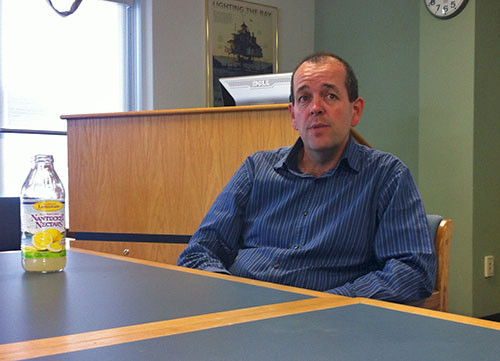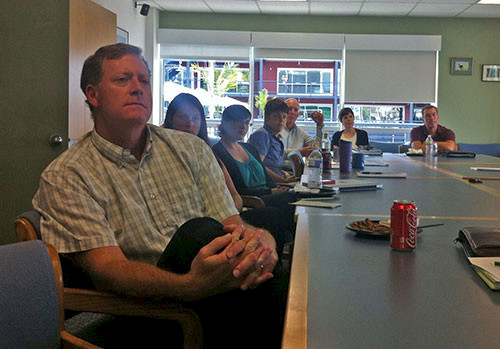Discussion following Michael Douglas seminar on Northern Australia and Chesapeake Bay: Worlds apart, similar challenges?
Bill Dennison ·
9 January 2013
| Learning Science |
2 comments
This blog details the question and answer period from the seminar given by Michael Douglas of the Charles Darwin University, at the IAN Seminar Series on September 27, 2012.

- What is being done to prepare for the projected 7mm sea level rise per year?
- People are very concerned about the floodplain areas. There are many case studies already, which allow us to show the public the need to act now.
- Kakadu National Park
- Many freshwater wetlands. Some models predict that in 70 years 50% of these freshwater wetlands will be gone.
- In some catchments, there are as many as 200 small dams.
- Hard to determine the future effectiveness of engineering efforts.
- Must prioritize critical habitats from ecological and cultural viewpoints.
- Must research the weeds and other threats.
- Developing management tools – Is the management community receptive?
- Yes, Kakadu is an iconic area and very important to the public. The Federal Environment
- Administrator listed the flood plains of Kakadu as a high priority and the Kakadu Managers have an obligation to respond to this.
- In the past, Kakadu managers have focused on one value (grazing purposes, biodiversity, etc.), but currently they are working towards focusing on many values to increase the stakeholders.
- More on water issues
- There are de-salinization plants in South and some cities in Western Australia.
- Often, there are plans proposed to build a canal to move water from the north to the south, but the cost is currently much too high.
- USFWS National Blackwater National Wildlife Refuge is currently experimenting on management techniques for adapting to sea level rise.
- What amount of weight do the indigenous people have?
- Often politically overlooked.
- Very strong percentage of land ownership across the region, so they are important landowners and stakeholders from that sense.
- The water that flows through their land is potentially very valuable, but it is owned by the Crown. They are currently pushing for water rights and planning.
- Many of the indigenous people suffer from poverty, so there are a lot of social issues and the environmental concerns are often overlooked.
- Started pushing their rights in the federal initiative of carbon farming.
- Indigenous rangers employment effort.
- Economic Research
- Economic models are very valuable for persuading politicians and managers.
- Must be careful – Difficult to put a value on the cultural, social, ecological, and health benefits.
- Climate change
- Extremely difficult to predict.
- Certain: Temperature, water quality, dissolved oxygen, and sea level rise.
- Not as certain about whether it will become wetter or drier.

Audience at Dougo's seminar.
About the author
Bill Dennison

Dr. Bill Dennison is a Professor of Marine Science and Vice President for Science Application at the University of Maryland Center for Environmental Science.
Next Post > Establishing a Darwin-IAN approach: Charles Darwin University and the Integration and Application Network
Comments
-
Bill Nuttle 12 years ago
I missed this seminar, but I am pretty sure that the rate of sea level rise referenced in the first followup question is 7 mm per year, not 7 meters per year as stated.
-
IAN 12 years ago
Thanks Bill - good catch. I have changed it to 7mm.

